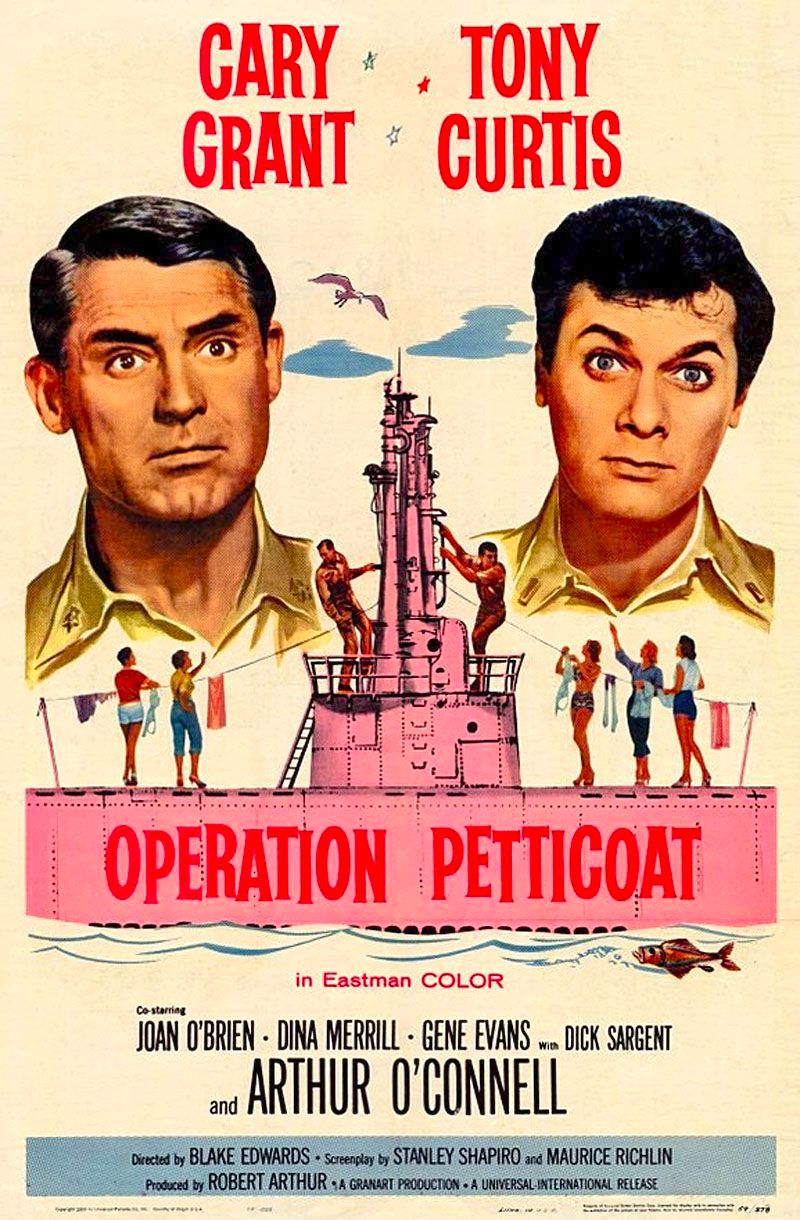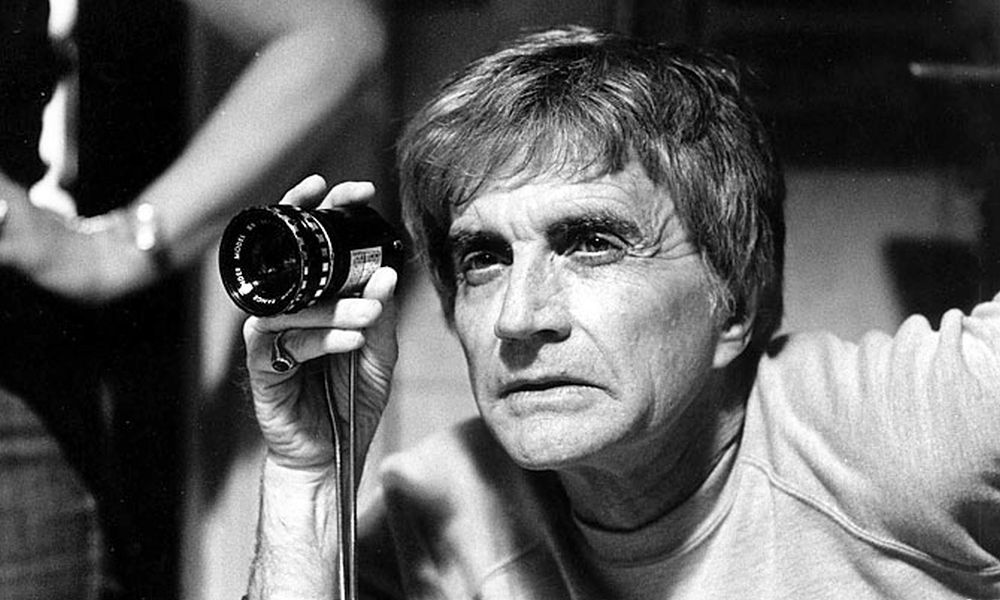"Blake Edwards is one of the few filmmakers from the late classical period of American movies (the late 1940s and 1950s) to survive and prosper through the 1980s. If anything, Edwards's work has deepened with the passing decades, though it no longer bears much resemblance to the norms and styles of contemporary Hollywood. Edwards is an isolated figure, but a vital one." - Dave Kehr & Audrey E. Kupferberg (The St. James Film Directors Encyclopaedia, 1998)
Blake Edwards
Director / Screenwriter / Producer
(1922-2010) Born July 26, Tulsa, Oklahoma, USA
(1922-2010) Born July 26, Tulsa, Oklahoma, USA
Key Production Countries: USA, UK
Key Genres: Comedy, Farce, Slapstick, Sex Comedy, Crime Comedy, Comedy Drama, Romantic Comedy, Comedy of Manners, Marriage Drama, Musical, Romance, Spy Film
Key Collaborators: Henry Mancini (Composer), Ralph E. Winters (Editor), Tony Adams (Producer), Rodger Maus (Production Designer), Julie Andrews (Leading Actress), Peter Sellers (Leading Actor), Philip Lathrop (Cinematographer), Fernando Carrere (Production Designer), Graham Stark (Character Actor), André Maranne (Character Actor), Jack Lemmon (Leading Actor), Herbert Lom (Leading Actor)
Key Genres: Comedy, Farce, Slapstick, Sex Comedy, Crime Comedy, Comedy Drama, Romantic Comedy, Comedy of Manners, Marriage Drama, Musical, Romance, Spy Film
Key Collaborators: Henry Mancini (Composer), Ralph E. Winters (Editor), Tony Adams (Producer), Rodger Maus (Production Designer), Julie Andrews (Leading Actress), Peter Sellers (Leading Actor), Philip Lathrop (Cinematographer), Fernando Carrere (Production Designer), Graham Stark (Character Actor), André Maranne (Character Actor), Jack Lemmon (Leading Actor), Herbert Lom (Leading Actor)
“One hangs on to the likings of one's youth and loyalties to stars and directors whose work caught one's attention at that formative time. However, this American director has long since lost me, his career shored up by the continuing box-office success of the Pink Panther films, and the fortuitous, Bo Derek-inspired success of the tedious 10.” - David Quinlan (Quinlan's Film Directors, 1999)
"Despite a variable career, Blake Edwards has directed some of the most successful comedies in Hollywood history. Born into a family with Hollywood connections - his grandfather directed silent star Theda Bara - Edwards broke into the industry as an actor, appearing in The Best Years of Our Lives (1946), amongst others… The early 1960s saw him established as a director, with a diverse series of glamorous, big-budget features." - Richard Armstrong (The Rough Guide to Film, 2007)

The Party (1968)
"Edwards reached a peak of success in the late 50s and early 60s with parallel triumphs in both television and films. For TV he created the popular series Peter Gunn (1958-60), Mr. Lucky (1959-60), and Dante (1960-61). For the big screen he directed a diverse number of superior productions: the service farce Operation Petticoat, the romantic comedy Breakfast at Tiffany's, the suspenseful thriller Experiment in Terror, the bleak social drama Days of Wine and Roses, and the hilarious Inspector Clouseau spoofs The Pink Panther and A Shot in the Dark. But in 1965, following the expensive debacle of the slapstick extravaganza The Great Race, Edwards's career began a decade-long slide at the box office and in the review columns." - The Film Encyclopedia, 2012
"Despite working in mainstream cinema, his maverick spirit and ego made him an uneasy partner with Hollywood studios. He famously savaged the hand that had fed him so well with S.O.B. (1981), a raucous, vitriolic attack on Tinseltown. His sophisticated work drew strongly on his love of early cinema (his stepgrandfather had directed silent films), and on his own life and psychological problems (he wrote two movies with his psychoanalyst, Milton Wexler). He also reworked his own films and remade those of other directors." - Brian Baxter (The Guardian, 2010)
"As a director of comedy, Edwards can successfully blend slapstick, borscht-circuit humor, and sophisticated wit into an enticing brew (The Pink Panther, 64; Breakfast at Tiffany's, 61; The Party, 68). His suspense films (Experiment in Terror, 62; Gunn, 67) are fraught with tingling suspense and psychosis." - William R. Meyer (The Film Buff's Catalog, 1978)
"It would be easy to dismiss Blake Edwards as a director of light entertainment. He has made many highly commercial films, many hilarious comedies and has employed some of the most outrageous sexual metaphors and offensive stereotypes in his films. His contribution to film culture, however, is enormous, diverse and unique. He is a great director, but not in the restrictive ‘high’ art sense of the term; his films blend both high and low by delving into the depths of the sordid while executing that depth with meticulous film artistry." - June Merrett (Senses of Cinema, 2003)
"His career is marked not only by its diversity but also by his desire for creative control over his work in highly collaborative media. He considers himself primarily a writer but, to maintain creative control, has assumed the roles of director and producer on many of his projects… His work has been internationally respected for decades. Its quality was praised by writers like Jean-Luc Godard at Cahiers du cinéma in France in the late 1950s and is still honoured at international film festivals." - Peter Lehman & William Luhr (Contemporary North American Film Directors, 2002)
"In the 1960s, Andrew Sarris wrote that Edwards "is one writer-director who has got some of his biggest laughs out of jokes that are too gruesome for most horror films." Today, Edwards is still mining the pain from slapstick, and though his track record is erratic, the style is uniquely his own." - Leonard Maltin's Movie Encyclopedia, 1995
"Almost the whole of Blake Edwards' career is built on the Pink Panther movies and a number of bittersweet comedies starring his wife, Julie Andrews. Among the first films Blake Edwards directed was This Happy Feeling (1958), a title that sums up much of his work." - Ronald Bergan (Film - Eyewitness Companions, 2006)
Selected Filmography
{{row.titlelong}}
GF Greatest Films ranking (★ Top 1000 ● Top 2500)
T TSPDT N 1,000 Noir Films
R Jonathan Rosenbaum S Martin Scorsese
T TSPDT N 1,000 Noir Films
R Jonathan Rosenbaum S Martin Scorsese
Blake Edwards / Fan Club
Fernando Méndez-Leite, Tobias Kniebe, Pierre Salvadori, Nick Broomfield, Christoph Huber, Grégory Valens, Fernando Lara, Paul Vecchiali, Milan Pavlovic, Serge Bromberg, Jonás Trueba, Bertrand Tavernier.
Fernando Méndez-Leite, Tobias Kniebe, Pierre Salvadori, Nick Broomfield, Christoph Huber, Grégory Valens, Fernando Lara, Paul Vecchiali, Milan Pavlovic, Serge Bromberg, Jonás Trueba, Bertrand Tavernier.
"Fan Club"
These film critics/filmmakers have, on multiple occasions, selected this director’s work within film ballots/lists that they have submitted.
These film critics/filmmakers have, on multiple occasions, selected this director’s work within film ballots/lists that they have submitted.


